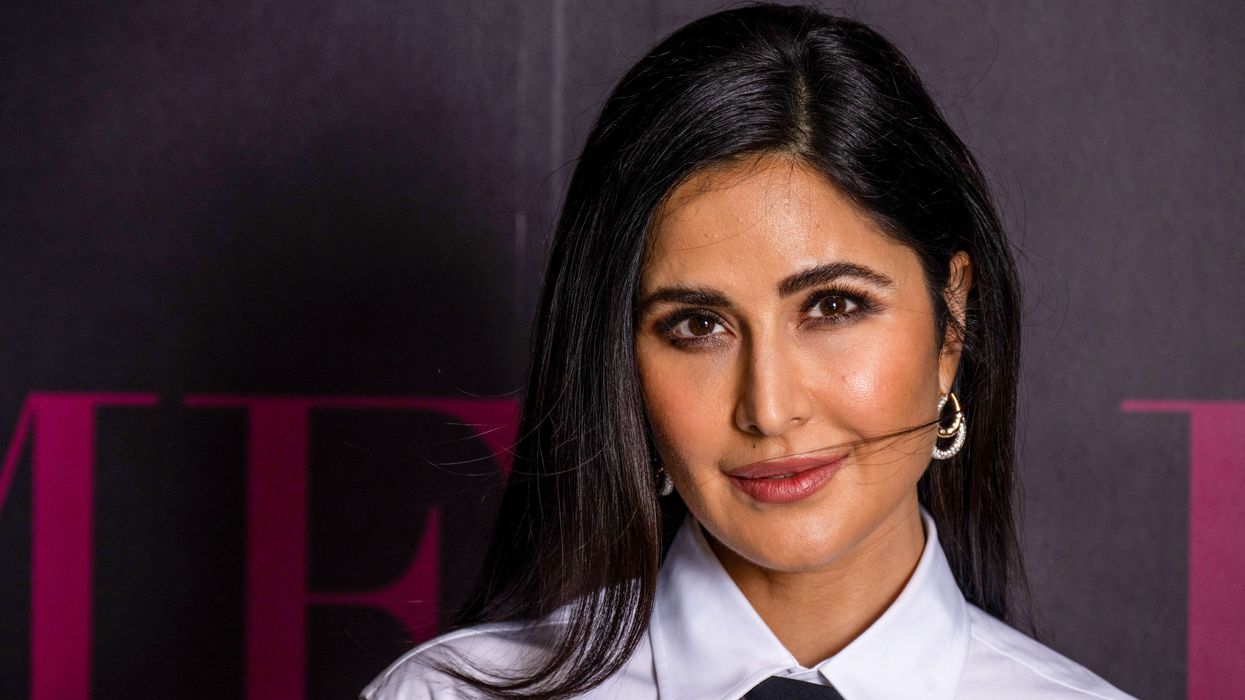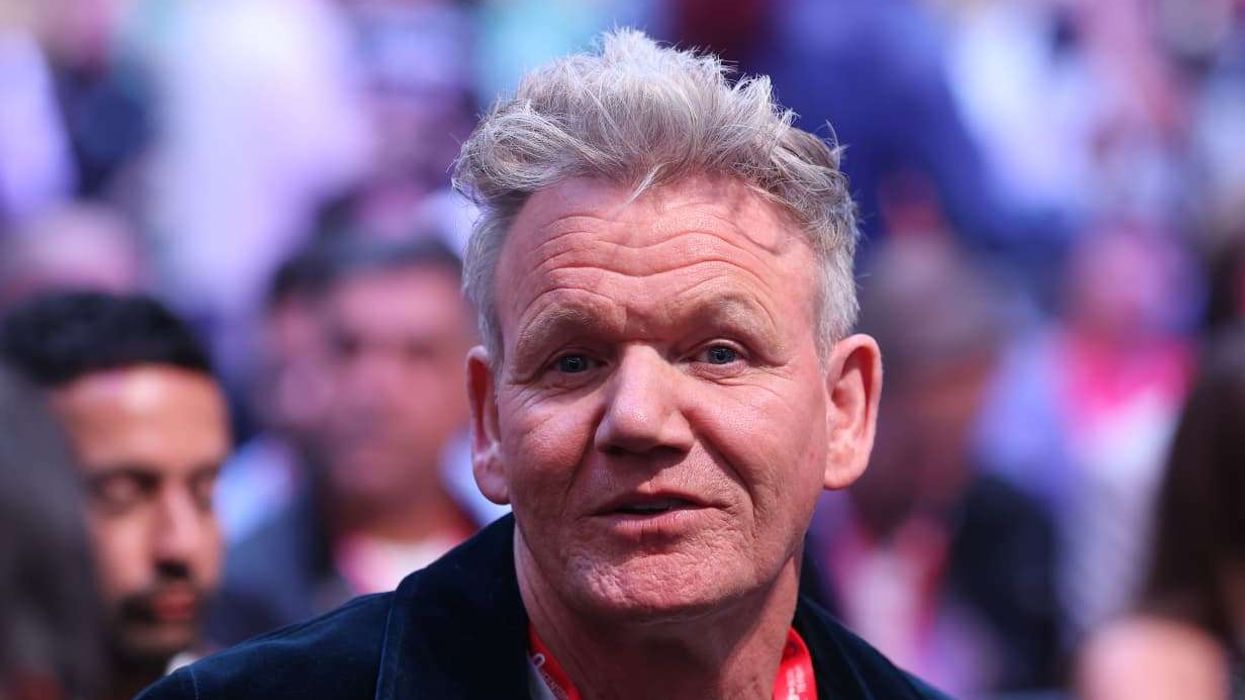PAKISTAN-born Salman Amin was appointed CEO of grocery multinational pladis Global in late 2019, and had less than a year there under his belt before the cataclysm of the pandemic and lockdown hit the market.
Covid-19, however, left this graduate of Northwestern University’s Kellogg School of Management unfazed, and pladis has seen its brands go from strength to strength during the 2020 emergency: it merely underlined Amin’s reputation as one of the most talented and capable brand experts around.
He is also one of the very few Asian-origin CEOs in the UK, although their numbers are growing steadily, as the GG2 Power List demonstrates with each passing year.
Amin’s particular talent is perhaps entwined with his life journey, which demonstrates several turns on the route to where he is today. It began in Lahore, where his family lived and where he went to school. “I was 17 years old,” he says. “I just finished my A-levels in Pakistan at the time and it was sort of expected that if I did reasonably well, it made sense to go abroad to study. So I went on to university in the United States, really to study engineering.”
So far, so straight-forward. Salman completed his degree and looked set on a conventional path – he was labouring in the field, or under the field to be more exact, wearing hi-vis and hard hat. “I was in Chicago, initially, literally down a hole with a giant boring machine in these tunnels under the city. And then, for me, there was a fork in the road: did I want to continue and do a master’s degree in engineering, or did I want to try something very different and broader?”
Even at that young age it was a rhetorical question. He knew he wanted to go in a different direction but wasn’t sure if it would be a gentle curve or a hairpin bend that was involved. “For a whole host of reasons I decided to go and study business at the Kellogg School. And that’s where the big epiphany for me was.”
The Kellogg School of Management at Northwestern University, about 10 miles north of the Chicago Loop is, alongside Wharton, one of the very top business schools in the USA. It has a reputation for encouraging creative thinking and is famous for cultivating corporate leadership skills.
“There were two big things that I learned at business school, beyond the subject matter that one studies,” he tells GG2 Power List. “One was a tolerance for ambiguity: in effect, the uncertainty of certainty. And that, for me was a massive ‘Aha!’ that has continued to be with me to this day. How do you deal with ambiguity and still function? How do you still make decisions despite ambiguity?
“The other thing,” he continues, “was to really understand and frame the question you want the answer to. Because many times you go down rabbit holes, and you think you’ve got the right question. But in fact, we’re not quite asking precisely the question that you need to.”
Amin assumed that after completing business school he would go straight into a banking career, but fate had other ideas.
“It was, in some ways, quite accidental,” he says of this second turn. “Because I thought that I was going into banking initially, and I ended up actually going in to see Procter and Gamble, who had invited me to interview with them. And I thought it would be a good initial interview to prepare me for others. But as I spoke to P&G, you know, we just had a really, really interesting conversation. And they kept inviting me back for further and further interviews.”
P&G was a long way from a slide rule and a stick of dynamite in a hole beneath the streets of the Windy City. “I ended up choosing the one thing I did not expect at work,” agrees Amin, “which was going into the world of marketing and general management.”
He ended up staying with the company for a decade, and the experience he gained there primed him for later adventures, including 17 years at PepsiCo, where he rose to become global CMO, fine-tuning one of the widest and most recognisable brand stables in the world.
“I worked with a team of really talented people as we were building what the expansion of snacks ought to look like outside the United States,” he says modestly, revealing that the genesis of the international vision he now deploys at pladis.
During his time at PepsiCo, Amin developed and marketed its snacks portfolio across the world, while also driving forward its “front-ofpack” labelling initiative – high-visibility panels which display information about a product’s nutrition and ingredients, to help consumers make healthier choices and avoid chronic diseases.
Before his latest appointment at pladis, Amin was in post as COO of the global commercial division of US chemicals giant S.C. Johnson & Son.
Amin is a man with vast experience – “experience [that] offers useful lessons that speak to our 21st century global marketplace” – and knowledge of planet-wide consumer grocery retail at the highest level.
He has developed a viewpoint and perspective to match, and it is centred around the phenomenon of brands and their compelling power. “I went from being a very single-minded engineer, where everything was solved by formulas, really, to opening up my lenses and looking at the world of uncertainty and saying, Well, how do you marry the two? How do you really think about it? And how do you become more curious about human behaviour and what governs behaviour, and what are the stimuli that change behaviour? How do people react to that?”
He was beginning to recognise the art and creativity of the marketplace – just as enlightening and entertaining as any theatre or gallery – “I just found it mesmerising, actually.”
“I’ve been very curious for a long, long time in my life. And if you look at the common thread, in terms of the choices I’ve made, it’s really been driven by curiosity, the desire to learn something or learn something more deeply than I already knew about: something completely different.”
As Harvard professor Shoshana Zuboff explained in her 2001 book, The Support Economy, after people have taken care of their basic needs consumption starts to become an element of identity and psychological self-expression, and this is where brands come in.
Since western economies entered the age of plenty following the second world war, brands are the means whereby we recognise and choose products. The companies that own and administer brands have enormous power to order our economy and even shape our sense of ourselves.
Such organisations – among them the huge consumer goods multinationals – are also the ones that make steady profits year-on-year and need leaders with the sort of understanding and acumen that Amin possesses, to ensure their continuing success.
“Fundamentally, great brands thrive during both good times and bad when they communicate basic human truths that speak to the needs and interests, concerns and dreams of the global consumer,” says Amin. “Whether he or she lives in New Delhi, Melbourne or Houston, consumers have far greater expectations than did previous generations.”
Brands more than ever are a key to profitability – especially so, during the pandemic – and they command margins because of a feelgood factor that generic and private label simply cannot match. They have a value in the prospect of rich fulfilment.
“We have brands like Hobnobs, we have BN in France, Verkade in the Netherlands. So, fabulous brands, and that’s just to name a few. It’s not often that you get to be the custodian of these brands that were built by great people that came before us.
“To me a brand is a promise, yes,” says Amin.
“And a good brand is good, as long as it delivers what it promises for consumers. That, for me, is the essence of what a brand stands for.”
pladis is a company that has Turkish roots (its chairman and owner is billionaire Murat Ülker) and was established under three years ago when it brought together United Biscuits, Ülker Group, Godiva Chocolatier and DeMet’s Candy Company as one global business – supposedly named for the Pleiades open star-cluster, visible from anywhere on Earth: pladis/Pleiades – sonically it makes sense. “It is really true,” says Amin.
“It was Ülker’s dream that he brings together the brightest stars on the planet. That’s what he’s managed to do.”
The company has 34 factories in 13 countries and its products reach most of the planet – four billion people in 120 countries across Europe, the Middle East, Africa, Asia and the Americas.
The mission for pladis is to compete with and beat companies (and Amin’s ex-employers) such as Proctor & Gamble in the quest for the “soul” and the wallet of the consumer: to win the loyalty and acceptance that make pladis products indispensable household names.
“I think job number one is to continue to grow nicely in the markets that we are in,” he says. “Many of our major markets would include the United States, the United Kingdom, France, the Netherlands, Turkey, Saudi Arabia, Egypt, India, to name just a few. Kazakhstan would be another one, and Romania. Those are a few of our markets that we are in, and we have very healthy positions there,” he says.
Salman Amin is a businessman but also a creative person – the dread term “thoughtleader” floats across the mind, but that’s not quite it: he is above all perhaps a practical thinker, with skin in the game.
“This is a game that rewards agility, rewards good ideas and creativity, because that’s what drives and creates value,” he says, and one takes note that profit is merely inferred as a natural side effect of his philosophy.
He is on the board of ITV plc (“a fabulous experience for me”) as well as on the global advisory board for his business alma mater, the Kellogg School of Management, and he is active in the Grocery Manufacturers Association.
Amin’s is a voice we can predict will increasingly be heard in both business and culture.
And Amin’s is an important voice, for diversity and inclusion in the workforce as much as market acumen. Diversity is a question that is also felt as a responsibility by industry leaders from ethnic minority backgrounds: How best to improve the prospects and positions of people from their own or similar backgrounds?
“I think a diverse and inclusive company will almost always deliver better business results,” he answers without any hesitation. “You don’t have to take my word for it. There have been a number of studies that have been done, which show how when boards and management teams and managers are made up of diverse individuals, in an inclusive company with diversity of ideas as well – as a way of thinking – those businesses always prosper economically.”
“Where I would start would be with this idea of inclusion,” insists Amin. “I think building an inclusive culture in a company is the single biggest factor, because it transcends everything else. It makes us all better.
Th attitude of living without boundaries and embracing diversity is something Amin learned at Northwestern and which has become part of his professional DNA. And it is the same with people: embrace and include.
“I think it’s the case for doing what’s right, because I believe we are better when we resemble the populations that we serve. And we are better because we understand those populations better then, and deliver better results.”
Having lived for a long time in the USA as well as the UK, and now having returned to the UK for what looks to be an indefinite period, what does Amin think of the progress made by the British Asian community?
“I think they have done a fabulous job, both as a community and as individuals of the UK,” he answers with enthusiasm. “I see British Asians go from strength to strength and I think it’s exactly because their community as a whole is agile. It understands who it exists to serve – they are very clear. They take calculated risks, they build business models that are differentiated, and they are enormously, enormously close to their consumers: they know intrinsically what their consumers are looking for.”
He was at pladis for just a year before the world turned upside down – how does he see the future?
“I am a big believer in the bright prospects of the future,” Amin answers. “I think we, as a supplier, have to continue to understand what a shopper wants when they walk into a store.
What are they looking for? How much time do they want to spend in the store?In 2009, he was awarded an Honorary Doctorate of Letters from De Montfort University.
Amin admits to being an “enthusiastic but average” golfer and also enjoys scuba diving.
He is married to Neelum and together they have two sons and live in London.








